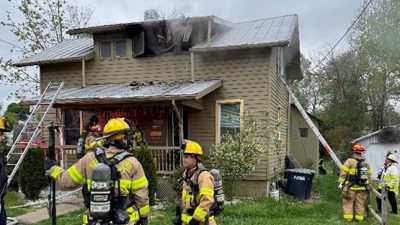
New research from VCU Massey Comprehensive Cancer Center indicates that survivors of childhood cancer are at a significantly higher risk of death following a major cardiovascular event than the general public.
The findings were published this week in the Journal of the American College of Cardiology — could fuel advocacy for a paradigm shift in clinical heart health guidelines to address cardiovascular risk factors at an earlier age in childhood cancer survivors.
“We found that the risk of death after a major cardiovascular event in a 50-year-old in the general population is equivalent to that of a 30-year-old who was previously treated for cancer as a child,” Dr. Wendy Bottinor, lead author on the study and cardio-oncologist at Massey and the VCU Health Pauley Heart Center, said. “Untreated risk factors have a larger impact on risk for death following a serious heart event among survivors of childhood cancer relative to the general population, and therefore we shouldn’t just assume that because someone is young they don’t need risk factors like high blood pressure or high cholesterol treated.”
Previous research demonstrated that childhood cancer survivors have an increased risk for heart disease and a higher incidence of cardiovascular mortality compared to the general public. The new study went deeper into the understanding of the impact of childhood cancer on survivors’ risk of death later in life following a major cardiovascular event compared to individuals who never had cancer, but also experienced similar heart issues.
Bottinor and her collaborators turned to a couple of robust databases for answers, including the Childhood Cancer Survivors Study, which includes a large cohort of 25,000 survivors of childhood cancer and their siblings, and the CARDIA study, which is a racially diverse cardiology database of young adults created to gain insights on how people develop heart disease.
They found that following heart failure, heart attack or stroke, mortality was higher in childhood cancer survivors than in their siblings who did not have cancer. Strikingly, compared with the general population, survivors of childhood cancer were more than a decade younger when they experienced one of the three events.
“This study supports the concept that survivors of childhood cancer experience what appears like accelerated aging, where their overall medical profiles are similar to people who are 10 or more years older,” said Bottinor, who is also a member of the Cancer Prevention and Control research program at Massey.
In an effort to identify potential solutions, the researchers determined that a medical condition known as dyslipidemia — an imbalance of cholesterol or fat in the blood that can lead to clogged arteries and serious heart issues — correlated to lower mortality following a cardiovascular event. People who are diagnosed with dyslipidemia are commonly prescribed statins, drugs that reduce risk of heart complications by lowering cholesterol levels and mitigating chronic inflammation, a known risk factor for both heart disease and cancer. Previous evidence suggests statins may be heart-protective medications in patients undergoing cancer treatment.
Bottinor and her collaborators were then led to suggest that using statins more universally in childhood cancer survivors, instead of only in the population that presents with heart problems, could provide general and increased protection against mortality following a cardiovascular complication later in life.
The paper also indicates that hypertension was also associated with an increased risk for heart-related death in childhood cancer survivors. Previous published data demonstrates that if someone who was treated for cancer is hypertensive, their risk for heart disease is magnified compared to someone who is hypertensive but has never been treated for cancer.
Bottinor said that current guidelines from multiple medical associations often include high thresholds regarding who is eligible to receive blood pressure medication, particularly for younger patients, and that these parameters should be adjusted to reduce the risk of long-term heart complications.
“We probably should be lowering that bar for treating hypertension when we’re talking about survivors of childhood cancer because their risk for heart disease is so much higher than the general population,” Bottinor said.
Further research needs to be conducted, according to Bottinor, to better understand the burden of heart health risk factors in younger adults who have been treated for cancer; clinical trials need to be activated that investigate if risk factor modification impacts patient outcomes; and efforts need to be implemented to increase general awareness of the risk factors that result following cancer treatment in children and younger adults.
The emerging field of cardio-oncology is paving the way for expert, multidisciplinary heart care before, during and after cancer treatment to mitigate adverse effects on cardiovascular health. The cardio-oncology program at Massey and the Pauley Heart Center is the only program in Virginia that has been accredited by the International Cardio-Oncology Society as a Center of Excellence.










